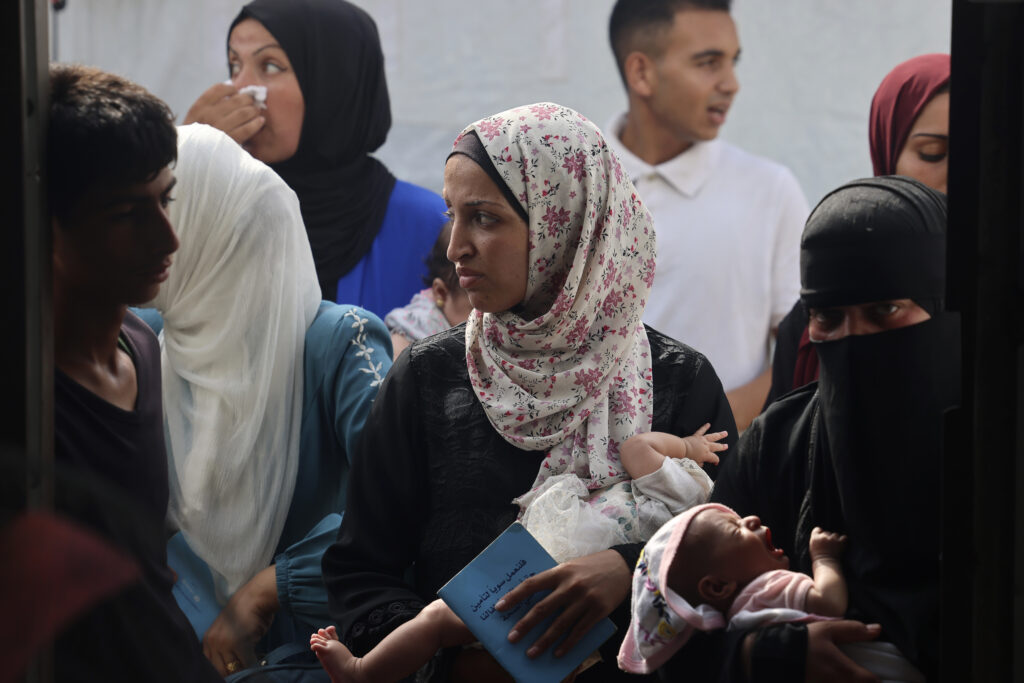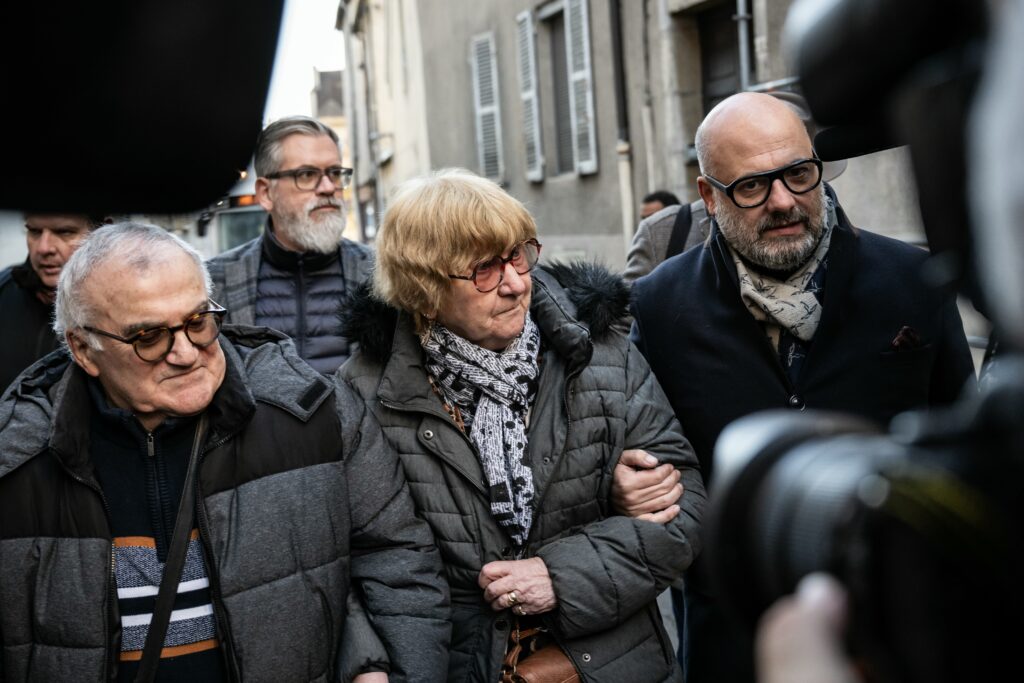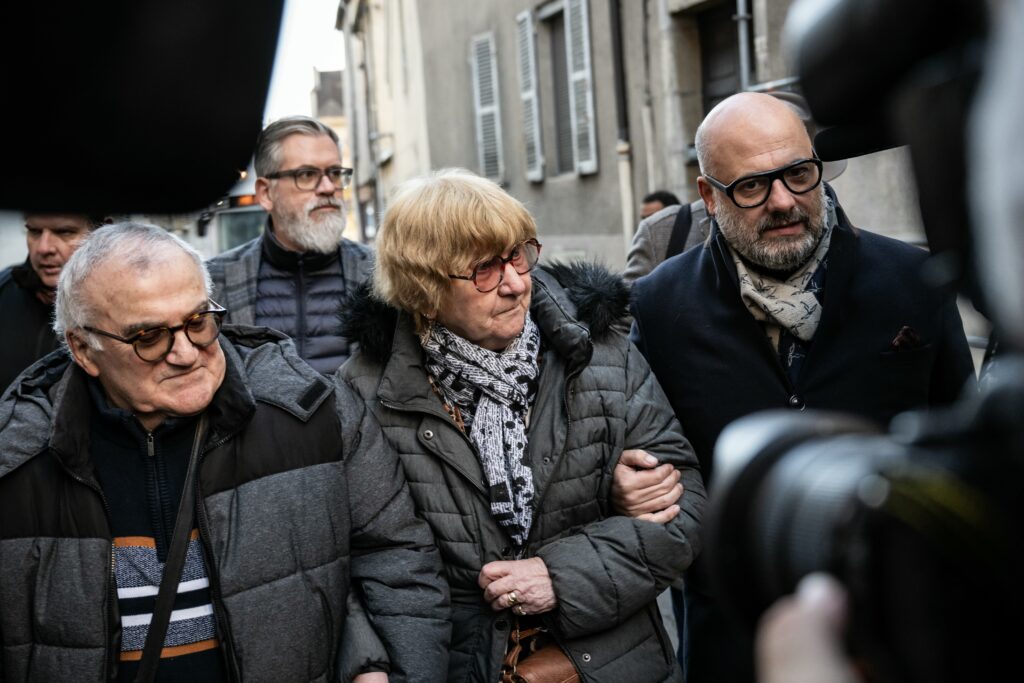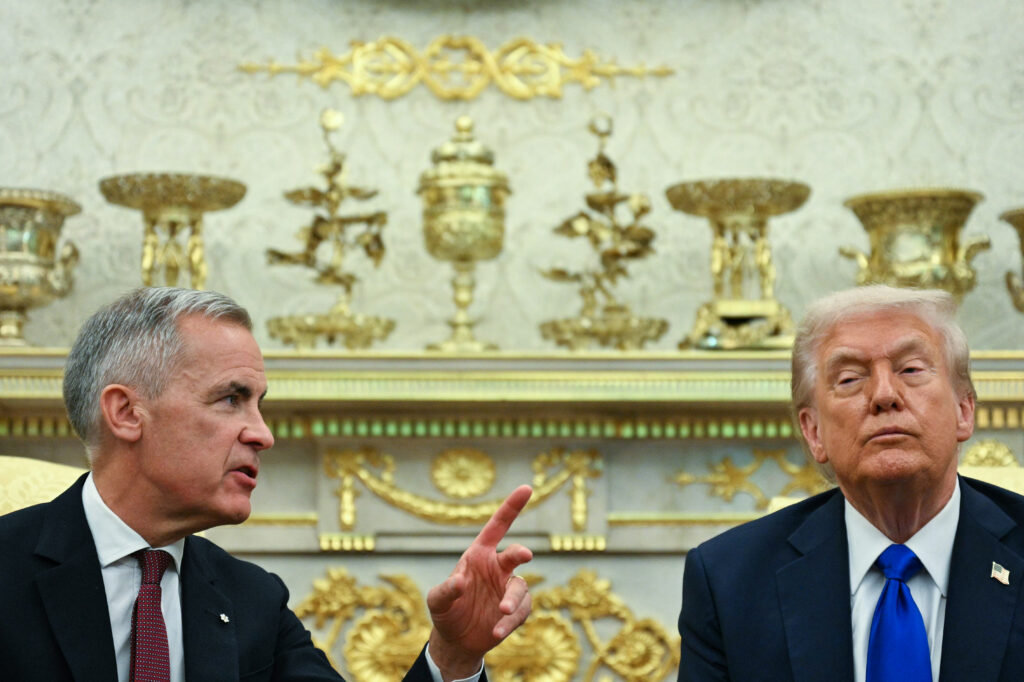WHO pleads for sick Gazans to be allowed to leave
The UN’s health agency pleaded Friday for thousands of people in desperate need of medical care to be allowed to leave Gaza, in what it said would be a “game-changer”.The World Health Organization has supported the medical evacuation of nearly 7,800 patients out of the Gaza Strip since the war with Israel began two years ago — and estimates there are 15,000 people currently needing treatment outside the Palestinian territory.But a US-brokered ceasefire that came into effect on October 10 has not sped up the process — the WHO has been able to evacuate only 41 critical patients since then.Rik Peeperkorn, the WHO’s representative in the Palestinian territories, called for all crossings out of Gaza into Israel and Egypt to be opened up during the ceasefire — not only for the entry of aid but for medical evacuations too.”All medical corridors need to be opened,” he said, particularly to hospitals in the West Bank and East Jerusalem, as happened routinely before the war.”It is vital and is the most cost-effective route. If that route opened, it would really be a… game-changer.”Speaking via video link from Jerusalem, he told journalists in Geneva that two evacuations were planned for next week, but he wanted them every day and said the WHO was ready to take “a minimum of 50 patients per day”.At the current rate, he said evacuating the 15,000 people needing treatment — including 4,000 children — would drag on for a decade or so.The WHO says more than 700 people have died waiting for medical evacuation since the war began.The UN health agency has called for more countries to step up and accept Gazan patients. While over 20 countries have taken patients, only a handful have done so in large numbers.Peeperkorn said only a fraction of Gaza’s health system remained in service — just 14 of 36 hospitals are even partially functional for a population topping two million.
Affaire Grégory: 41 ans plus tard, une mise en examen relance l’enquête
Plus de 40 ans après le meurtre du petit Grégory, sa grand-tante a été une nouvelle fois mise en examen, vendredi, soupçonnée d’être le “corbeau” qui a revendiqué l’assassinat, sa défense dénonçant une nouvelle “erreur” dans cette enquête chaotique.Âgée de 81 ans, Jacqueline Jacob a été mise en examen pour association de malfaiteurs, a indiqué Me Stéphane Giuranna, un des trois avocats de Mme Jacob, après plus d’une heure et demie d’interrogatoire de sa cliente à la cour d’appel de Dijon.L’association de malfaiteurs criminelle qualifie une entente en vue de préparer un crime, même si la personne poursuivie ne l’a pas commis ou si aucun élément ne permet de le prouver.La grand-tante, dont l’époux est un frère de la grand-mère du petit garçon, est soupçonnée d’être l’un des corbeaux – il y en aurait cinq selon une expertise – qui ont menacé pendant des années la famille de Grégory Villemin. C’est elle qui aurait également revendiqué le meurtre de Grégory Villemin, retrouvé noyé pieds et mains liés à l’âge de quatre ans le 16 octobre 1984 dans la Vologne, une rivière des Vosges, selon les juges enquêteurs.La défense fera appel de la mise en examen, “sur la forme et sur le fond”, a averti Me Giuranna, voyant dans le fait que Mme Jacob est ressortie de la cour “sans aucune mesure de coercition ni même un contrôle judiciaire” la preuve que cette mise en examen “ne pèse pas bien lourd et que ça vaut pas tripette”.L’avocat a rappelé qu’une expertise vocale avait dans le passé déterminé que le corbeau est “un homme âgé de 45 à 55 ans”.La grand-tante “a répondu à toutes les questions” et “n’a jamais été prise au dépourvu”, a-t-il asséné.”La justice n’apprend pas de ses erreurs”, a estimé Me Alexandre Bouthier, autre avocat de Mme Jacob, notamment quand sa cliente avait déjà été mise en examen, en 2017, alors pour “enlèvement et séquestration suivie de mort”, et même emprisonnée durant quatre jours. Cette mise en examen avait été annulée en mai 2018, pour un vice de forme, dans un énième couac de la laborieuse enquête.- La stylométrie, un “gadget” -Me Bouthier a de plus qualifié de “gadget” les études de stylométrie, technique qui s’attache à analyser l’orthographe et les tournures de phrases. Selon l’arrêt ordonnant l’interrogatoire de Mme Jacob, que l’AFP a pu consulter, une étude de stylométrie soutient “très fortement l’hypothèse” que Mme Jacob a écrit la lettre du 16 octobre 1984 revendiquant le crime. “J’espère que tu mourras de chagrin le chef (…) Voilà ma vengeance. Pauvre con”, disait le courrier. “La stylométrie est loin d’être un gadget”, a répondu à l’AFP Marie-Christine Chastant-Morand, avocate des parents du petit Grégory. “C’est un moyen scientifique nouveau qui sonne la signature, l’empreinte de l’expression” d’une personne, a-t-elle estimé, disant garder “espoir” que la vérité éclatera, “avec tous les moyens possibles pour la faire émerger”.”Les parents (de Grégory) sont déterminés”, a-t-elle ajouté.Les juges enquêteurs estiment que Mme Jacob serait également à l’origine de l’appel téléphonique anonyme de revendication passé le jour du meurtre.”Je pense avoir reconnu” sa voix, avait déclaré son beau-frère, René Jacob, après avoir écouté un enregistrement du corbeau devant les gendarmes le 2 août 2022.Dès le début des investigations, les enquêteurs avaient pointé du doigt la haine farouche entre les Jacob et les Villemin, faite de jalousies ancestrales qui peuplent parfois les campagnes.Jacqueline Jacob, déléguée CGT, aurait traité Jean-Marie Villemin, père de Grégory et contremaître, de “chef de mes couilles” en 1982, selon des témoins. Les époux Marcel et Jacqueline Jacob ont nié toute haine.La défense de Mme Jacob souligne de plus que, dans des réquisitions que les juges ne sont pas tenus de suivre, le procureur général de Dijon lui-même, Philippe Astruc, avait estimé la mise en examen de Mme Jacob non justifiée.Les arguments à charge “ne suffisent pas à constituer des indices graves ou concordants”, avait estimé M. Astruc, soulignant notamment qu’une expertise de 1991 avait attribué la lettre de revendication du crime, non pas à Mme Jacob, mais à Bernard Laroche, cousin du père de Grégory qui avait été inculpé puis tué par Jean-Marie Villemin.
Affaire Grégory: 41 ans plus tard, une mise en examen relance l’enquête
Plus de 40 ans après le meurtre du petit Grégory, sa grand-tante a été une nouvelle fois mise en examen, vendredi, soupçonnée d’être le “corbeau” qui a revendiqué l’assassinat, sa défense dénonçant une nouvelle “erreur” dans cette enquête chaotique.Âgée de 81 ans, Jacqueline Jacob a été mise en examen pour association de malfaiteurs, a indiqué Me Stéphane Giuranna, un des trois avocats de Mme Jacob, après plus d’une heure et demie d’interrogatoire de sa cliente à la cour d’appel de Dijon.L’association de malfaiteurs criminelle qualifie une entente en vue de préparer un crime, même si la personne poursuivie ne l’a pas commis ou si aucun élément ne permet de le prouver.La grand-tante, dont l’époux est un frère de la grand-mère du petit garçon, est soupçonnée d’être l’un des corbeaux – il y en aurait cinq selon une expertise – qui ont menacé pendant des années la famille de Grégory Villemin. C’est elle qui aurait également revendiqué le meurtre de Grégory Villemin, retrouvé noyé pieds et mains liés à l’âge de quatre ans le 16 octobre 1984 dans la Vologne, une rivière des Vosges, selon les juges enquêteurs.La défense fera appel de la mise en examen, “sur la forme et sur le fond”, a averti Me Giuranna, voyant dans le fait que Mme Jacob est ressortie de la cour “sans aucune mesure de coercition ni même un contrôle judiciaire” la preuve que cette mise en examen “ne pèse pas bien lourd et que ça vaut pas tripette”.L’avocat a rappelé qu’une expertise vocale avait dans le passé déterminé que le corbeau est “un homme âgé de 45 à 55 ans”.La grand-tante “a répondu à toutes les questions” et “n’a jamais été prise au dépourvu”, a-t-il asséné.”La justice n’apprend pas de ses erreurs”, a estimé Me Alexandre Bouthier, autre avocat de Mme Jacob, notamment quand sa cliente avait déjà été mise en examen, en 2017, alors pour “enlèvement et séquestration suivie de mort”, et même emprisonnée durant quatre jours. Cette mise en examen avait été annulée en mai 2018, pour un vice de forme, dans un énième couac de la laborieuse enquête.- La stylométrie, un “gadget” -Me Bouthier a de plus qualifié de “gadget” les études de stylométrie, technique qui s’attache à analyser l’orthographe et les tournures de phrases. Selon l’arrêt ordonnant l’interrogatoire de Mme Jacob, que l’AFP a pu consulter, une étude de stylométrie soutient “très fortement l’hypothèse” que Mme Jacob a écrit la lettre du 16 octobre 1984 revendiquant le crime. “J’espère que tu mourras de chagrin le chef (…) Voilà ma vengeance. Pauvre con”, disait le courrier. “La stylométrie est loin d’être un gadget”, a répondu à l’AFP Marie-Christine Chastant-Morand, avocate des parents du petit Grégory. “C’est un moyen scientifique nouveau qui sonne la signature, l’empreinte de l’expression” d’une personne, a-t-elle estimé, disant garder “espoir” que la vérité éclatera, “avec tous les moyens possibles pour la faire émerger”.”Les parents (de Grégory) sont déterminés”, a-t-elle ajouté.Les juges enquêteurs estiment que Mme Jacob serait également à l’origine de l’appel téléphonique anonyme de revendication passé le jour du meurtre.”Je pense avoir reconnu” sa voix, avait déclaré son beau-frère, René Jacob, après avoir écouté un enregistrement du corbeau devant les gendarmes le 2 août 2022.Dès le début des investigations, les enquêteurs avaient pointé du doigt la haine farouche entre les Jacob et les Villemin, faite de jalousies ancestrales qui peuplent parfois les campagnes.Jacqueline Jacob, déléguée CGT, aurait traité Jean-Marie Villemin, père de Grégory et contremaître, de “chef de mes couilles” en 1982, selon des témoins. Les époux Marcel et Jacqueline Jacob ont nié toute haine.La défense de Mme Jacob souligne de plus que, dans des réquisitions que les juges ne sont pas tenus de suivre, le procureur général de Dijon lui-même, Philippe Astruc, avait estimé la mise en examen de Mme Jacob non justifiée.Les arguments à charge “ne suffisent pas à constituer des indices graves ou concordants”, avait estimé M. Astruc, soulignant notamment qu’une expertise de 1991 avait attribué la lettre de revendication du crime, non pas à Mme Jacob, mais à Bernard Laroche, cousin du père de Grégory qui avait été inculpé puis tué par Jean-Marie Villemin.
Trump says all Canada trade talks ‘terminated’ over ‘fake’ ad
US President Donald Trump on Friday doubled down on his decision to end trade talks with Canada over an anti-tariff advertising campaign, a sudden about-face soon after a cordial White House meeting with Prime Minister Mark Carney.On his Truth Social network Thursday, Trump vented fury at what he called a “fake” ad that he said misquoted former president Ronald Reagan discussing tariff policy.Trump said the campaign — produced by the Canadian province of Ontario to be aired on US television channels — was designed to “interfere with the decision of the US Supreme Court,” which is due to rule on his sweeping global tariffs.”CANADA CHEATED AND GOT CAUGHT!!!” Trump posted again on Truth Social early Friday. “Canada has long cheated on Tariffs, charging our farmers as much as 400%. Now they, and other countries, can’t take advantage of the U.S. any longer.”There was no immediate comment from officials in Canada, where Carney said in a budget speech earlier this week that Washington’s “fundamentally changed” trade policy required a revamp of Ottawa’s economic strategy.Trump wrote Thursday that “the Ronald Reagan Foundation has just announced that Canada has fraudulently used an advertisement, which is FAKE, featuring Ronald Reagan speaking negatively about Tariffs.”He reiterated that in his Friday post, writing that Reagan “LOVED TARIFFS FOR OUR COUNTRY, AND ITS NATIONAL SECURITY.”The foundation wrote on X that the Ontario government had used “selective audio and video” from a radio address on trade that Reagan had delivered in 1987.It said the ad “misrepresents” what the former Republican president said, adding that it was “reviewing its legal options.”The ad used quotes from Reagan’s speech, in which he warned against some of the ramifications that high tariffs on foreign imports could have on the US economy.It cited Reagan as saying that “high tariffs inevitably lead to retaliation by foreign countries and the triggering of fierce trade wars,” a quote that matches a transcript of his speech on the Ronald Reagan Presidential Library’s website.- ‘Rupture’ -The latest twist in relations between the United States and Canada came just over two weeks after Carney visited Trump at the White House to seek a relaxation of stiff US tariffs.At that meeting, Trump described Carney as a “world-class leader” and said the Canadian would “walk away very happy” from their discussion.Trump’s global sectoral tariffs — particularly on steel, aluminum, and autos — have hit Canada hard, forcing job losses and squeezing businesses.For now, the United States and Canada continue to adhere to an existing North American trade deal called the USMCA, which ensures that roughly 85 percent of cross-border trade in both directions remains tariff-free.In his speech on Wednesday, ahead of the unveiling of the 2025 federal budget next month, Carney said that the United States has raised “its tariffs to levels last seen during the Great Depression.””The scale and speed of these developments are not a smooth transition, they’re a rupture. They mean our economic strategy needs to change dramatically,” Carney added, saying the process “will take some sacrifices and some time.”Both Trump and the Canadian prime minister are due to attend gatherings in the coming days — the regional summit of Southeast Asian nations (ASEAN) in Malaysia and the Asia-Pacific Economic Cooperation (APEC) Forum in South Korea.Carney has also said his government is focused on preserving the USMCA, which was signed during Trump’s first term and is scheduled for review in 2026.While most cross-border food trade has remained tariff-free, some US tariffs and Canadian countermeasures have forced some suppliers to raise prices.Data released Tuesday showed Canada’s annual inflation rate rising to 2.4 percent in September — slightly above analyst expectations, with rising grocery prices partly driving the inflation bump.Canadian grocery stores have historically relied heavily on US imports.




